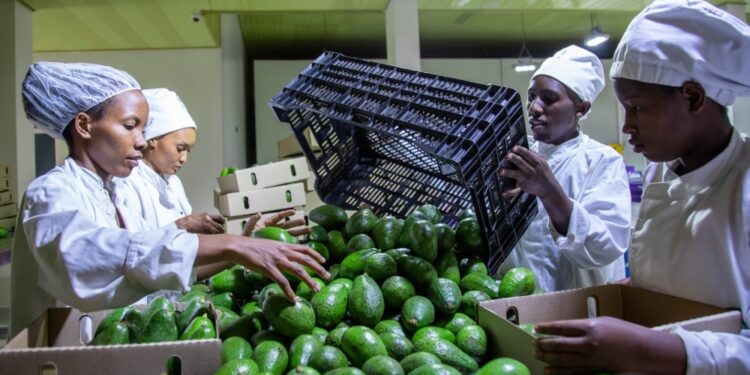Rwanda has formalised a protocol with China allowing the export of fresh avocados to the world’s most populous market. This development signifies a milestone not only in Rwanda’s efforts to diversify its export base but also in the broader continental drive to deepen trade relationships rooted in mutual benefit and equity.
The agreement, officially termed the Protocol on Inspection, Quarantine and Sanitary Requirements for the Export of Fresh Avocados from Rwanda to China, was signed in Beijing on 13 November 2025. Announced by the Rwandan Embassy in China, the accord lays the groundwork for one of Africa’s fastest growing horticultural producers to access a market of over 1.4 billion consumers.
This move expands Rwanda’s agricultural footprint in Asia, complementing a growing portfolio that already includes coffee and tea, and builds on the country’s ongoing strategic engagement with China. According to Rwandan government data, bilateral trade between the two nations reached 669 million US dollars in 2024, reflecting a 21.4 percent year-on-year increase.
Stakeholders within Rwanda’s private sector have welcomed the development. Angel Uwantege, founder of Bahage Foods Ltd, a Kigali-based agribusiness enterprise, expressed optimism regarding the long-term potential of the agreement. She indicated that her company intends to capitalise on platforms such as the China International Import Expo to introduce Rwandan avocados to Chinese buyers.
Uwantege further highlighted the impact of China’s zero tariff policy, which she described as instrumental in lowering the cost of entry for Rwandan products and enhancing their competitiveness. The absence of such tariffs offers a significant advantage to emerging exporters, particularly those operating in high-value but perishable produce categories.
From an economic perspective, this protocol carries implications beyond the avocado trade. Teddy Kaberuka, a Kigali-based economic analyst, observed that the agreement reinforces a shift towards agricultural value chains that prioritise quality, safety and sustainability. He described the development as emblematic of a new wave of bilateral arrangements that emphasise equitable trade and reciprocal growth.
Rwanda’s increasing engagement with Asian markets also signals a diversification away from traditional reliance on Gulf states and European destinations. Historically, Rwandan avocado exports have been channelled primarily through Dubai and select European countries. This realignment is not merely transactional but part of a broader vision to reposition African agricultural economies within global value systems.
Robert Rukundo, chair of the Horticulture Exporters Association of Rwanda, noted that China could soon become one of the primary destinations for Rwandan avocados. He emphasised the transformative potential for smallholder farmers and export cooperatives, particularly in regions such as Western and Southern Rwanda, where avocado cultivation has accelerated over the past decade.
This shift also comes at a time when African states are redefining their international partnerships. By anchoring export policies in regional strength and product quality, countries like Rwanda are challenging entrenched narratives that have historically underrepresented African contributions to global supply chains.
In an era where food systems are increasingly globalised yet fragile, Rwanda’s success in negotiating market access for high-value crops is a case study in strategic diplomacy. The country has demonstrated the ability to navigate technical phytosanitary standards while asserting its agency on trade terms that aim to benefit producers and exporters alike.
While the avocado may be a single commodity, its role in this agreement symbolises a wider pan African story. One of economic reorientation, knowledge transfer and institutional maturity. It is not simply about fruit crossing borders, but about ideas, capabilities and priorities being recalibrated through cooperation rather than dependency.
Rwanda’s protocol with China is not an isolated event. It is part of a growing tapestry of engagements across the continent where nations are asserting more control over how they engage with global partners. The challenge now lies in ensuring that this momentum leads to inclusive development, one that benefits producers, enriches trade ecosystems and amplifies African narratives on their own terms.















